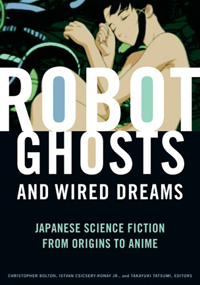Concept 1: Knowledge & Power
The nation-states, organizations, or corporations that hold the most power are those with the most information who have highly skilled workers contributing to the continual growth of knowledge, and those entities who have the most access to technology will continue to hold the most power globally.
“Knowledge in the form of an informational commodity indispensable to productive power is already, and will continue to be, a major – perhaps the major – stake in the worldwide competition for power” (Lyotard, 1979).
Concept 2: Knowledge Value
Lyotard argues that knowledge as an end-goal (learning for the sake of learning) has been replaced in the postmodern era of pervasive capitalism by a knowledge economy. In this sense, knowledge is only sought after if it has functional value or can be used towards a commercial end.
“Knowledge is and will be produced in order to be sold, it is and will be consumed in order to be valorized in a new production: in both cases, the goal is exchange. Knowledge ceases to be an end in itself, it loses its “use-value” (Lyotard, 1979).
Concept 3: Capitalism & the Decline of the Nation-State
National governments are no longer the primary stakeholders regarding the exchange of knowledge, information and data. Rather, the diminishing power of the nation-state is brought about through the presence of other groups (largely multinational corporations mentioned elsewhere by Lyotard) with which the nation-state is unable to but must compete with for access to the latest technologies and information.
“Access to data is, and will continue to be, the prerogative of experts of all stripes. The ruling class is and will continue to be the class of decision makers. Even now it is no longer composed of the traditional political class, but of a composite layer of corporate leaders, high-level administrators, and the heads of the major professional, labor, political, and religious organizations.” (Lyotard, 1979)
Concept 4: The Control of Knowledge
Because the computerization of society has brought about a shift in an understanding of what is considered ‘knowledge’ and who has access to it, whoever has the power to decide what is considered (valuable) knowledge holds the power of determining what information matters in the first place. This falls primarily on corporations and other influential groups who are dominating the technological market.
“For it appears in its most complete form, that of reversion, revealing that knowledge and power are simply two sides of the same question: who decides what knowledge is, and who knows what needs to be decided? In the computer age, the question of knowledge now more than ever is a question of government.” (Lyotard, 1979)
Concept 5: Language Games
Each type of interaction and context where language is used has different sets of rules which govern how individuals communicate with each other. These rules determine what kind of knowledge can be produced by such interactions.
“Wittgenstein, taking up the study of language again from scratch, focuses his attention on the effects of different modes of discourse; he calls the various types of utterances he identifies along the way […] language games. What he means by this term is that each of the various categories of utterance can be defined in terms of rules specifying their properties and the uses to which they can be put” (Lyotard, 1979)
Concept 6: Traditional vs. Critical Theory
Because traditional theory is a direct product of the knowledge environment in which it originated, traditional theories can be taken over by the system and used for optimization purposes more easily than critical theories. On the other hand, critical theories are those which call into question its system of origin, thus are less likely to be used to perpetuate identified problems.
““Traditional theory is always in danger of being incorporated into the programming of the social whole as a simple tool for the optimization of its performance; this is because its desire for a unitary and totalizing truth lends itself to the unitary and totalizing practice of the system’s managers. “Critical” theory, based on a principle of dualism and wary of syntheses and reconciliations, should be in a position to avoid this fate.” (Lyotard, 1979)
Concept 7: Social Bonds
Because of technology, the potential relationships which one can engage in are shifting and expanding. The types of social bonds that people can make with others through technology and technological mediation is moving beyond typical conceptions of community and nationhood.
“A self does not amount to much, but no self is an island; each exists in a fabric of relations that is now more complex and mobile than ever before” (Lyotard, 1979).
Concept 8: Agonistics
For Lyotard, agonistics as combative and interrogative practice helps contribute to the foundation of innovation. It is within strict sets of rules and institutional oppression that innovation and the creation of new forms of knowledge halts. Technology dismantles the traditional rigidity of knowledge, as the very concept of what it is to know shifts and changes alongside technological development.
“What is needed if we are to understand social relations in this manner, on whatever scale we choose, is not only a theory of communication, but a theory of games which accepts agonistics as a founding principle. In this context, it is easy to see that the essential element of newness is not simply “innovation.” [..] This “atomization” of the social into flexible networks of language games may seem far removed from the modern reality, which is depicted, on the contrary, as afflicted with bureaucratic paralysis. The objection will be made, at least, that the weight of certain institutions imposes limits on the games, and thus restricts the inventiveness of the players in making their moves.” (Lyotard, 1979)
How is this useful or relevant today?
Much of what Lyotard spoke of in “The Postmodern Condition” (1984) has been proven true throughout the last three decades, and the patterns he saw emerging in economic, political and knowledge-driven areas have become increasingly more entrenched in the daily lives of many in various ways. With regards to education, the connection between knowledge and power is most clearly seen through the importance of access to technology for youth. Because technology has altered the ways people communicate, learn and transmit knowledge, technological literacy is a fundamental part of contemporary schooling. Technological innovation such as the internet and new media impact what constitutes knowledge, and it is those who control the production of new kinds of knowledge that have the most influence. Because of the connection between knowledge and power which Lyotard spoke of in “The Postmodern Condition,” and the connection between knowledge and technology, or the computerization of society, it is paramount that educators address gaps in access to technology in order to minimize the power differentials seen in schools and society on a broader scale. Lyotard argues that the end-goal of knowledge acquisition has been reduced to function-value in relation to the capitalist knowledge economy, thus it is of crucial importance that all students be given access to various forms of technology so that all students can succeed and compete on a global scale. Because of the power connected to the relationship between knowledge and technology, it is important that access not be centrally located – this phenomenon is more prevalent than when Lyotard made his predictions, and it is partially the job of educators to ensure access to technology is provided to all students, encouraging a dynamic understanding of what constitutes ‘knowing’ for all.
Lyotard, J. F. (1984). The Postmodern Condition: A Report on Progress. Excerpts online at: http://www.marxists.org/reference/subject/philosophy/works/fr/lyotard.htm




